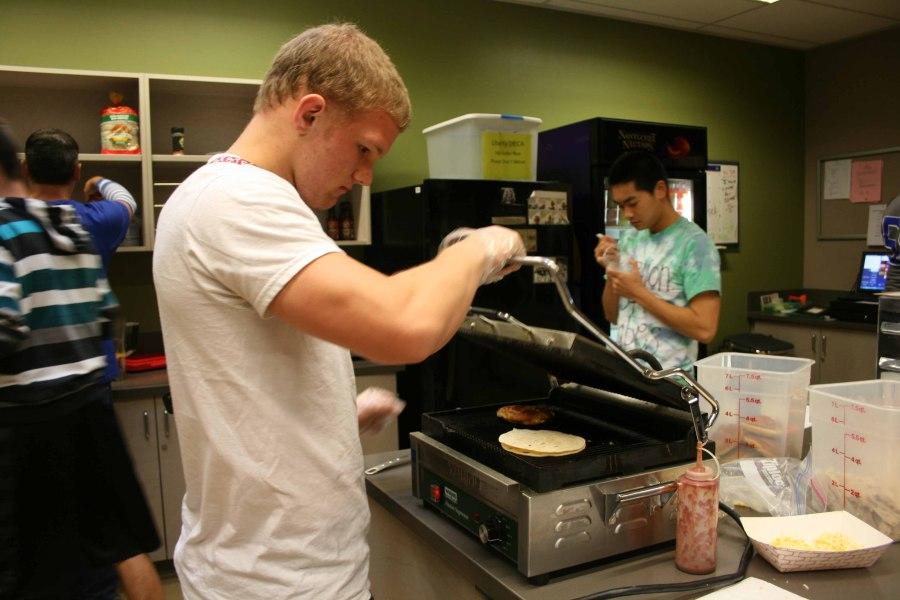New nutrition policy eats away at DECA and L’Cafe menus
October 22, 2014
The recent change in nutrition regulations at Liberty has left DECA and the L Café with few options to sell the food most teenagers like to eat.
The new regulations state that foods should not be over 350 calories and 280mg of sodium, and that the first ingredient listed has to be a wheat or protein product. Student organizations are struggling to find food that meets the regulations.
“DECA has had a hard time putting together the product lines in the store just because the restrictions are so tight. It’s hard to put together a sandwich when you can’t use meat, cheese, and bread together without going over the sodium limit or calorie intake for a particular entrée,” DECA teacher Chris Gapinski said.
Foods like nuts and seeds, dried fruit, avocados, whole grains, vegetable oil, and oily fish are considered “unhealthy” because of the calories, but these aren’t necessarily bad calories. Even though vegetable oil is considered unhealthy by the new nutrition guidelines, researchers found that it can actually lower the risk of heart attack.
Not only DECA is having troubles with the new regulations. The culinary program is having a really hard time meeting the correct amount of calories as well.
“Almost everything that we had on our menu is too high in calories (including our salads) to sell now,” culinary teacher Zarah Matsuda said. “We are trying to come up with solutions to work around the guidelines but even healthy substitutions like avocado for butter in a brownie dish are still too high in calories.”
New foods such as fruit smoothies and healthy snacks are going to be introduced to the L’ Café. Matsuda says they will be loaded with fruits and veggies and will good nutritious snacks. Additionally, the L Café is substituting wraps for sandwiches.
“The calories in a tortilla are a lot less than in bread,” Matsuda said.
English teacher Kathy Creveling states that the goal of this act is to get the kids who don’t have the option to eat healthy or at all at home to get a nutritious lunch here at school.
“Some of these kids can’t get nutritious foods because they can’t afford it, but what they can afford is food from places like McDonalds and Burger King which don’t have nutritious foods to choose from,” Creveling said.
“I don’t necessarily think that the act is making students healthier. I think it’s more of a process. I do believe foods should be healthier and the students should be offered healthier choices, but I don’t think the restrictions can necessarily do that,” Gapinski said.



